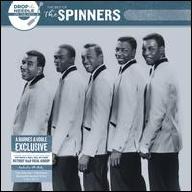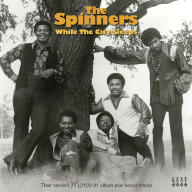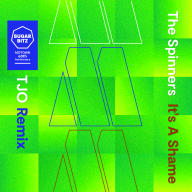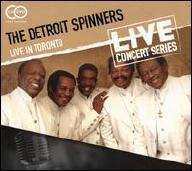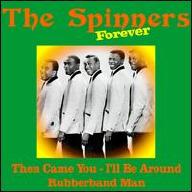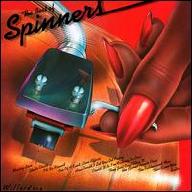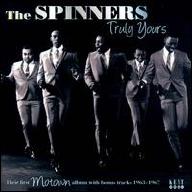Originally called the Domingoes, the quintet formed when its members were high school students in the Detroit suburb of Ferndale in 1954. The group first featured James Edwards, Henry Fambrough, Billy Henderson, Pervis Jackson, and C.P. Spencer. After a few weeks, Edwards left and was replaced by Bobbie Smith. Spencer departed in 1956 and had his role filled by George Dixon. In 1961, they came to the attention of producer Harvey Fuqua, who began recording the group -- who named themselves the Spinners that year -- for his Tri-Phi Records. The band's first single, "That's What Girls Are Made For," became a Top Ten R&B hit upon its 1961 release and featured Smith on vocals. Following its release, Dixon was replaced by Edgar Chico Edwards. Over the next few years, the group released a series of failed singles, and when Tri-Phi was bought out by Motown in the mid-'60s, the Spinners became part of the larger company's roster. By that time, Edgar Chico Edwards had been replaced by G.C. Cameron.
Though the Spinners had some R&B hits at Motown during the late '60s, including "I'll Always Love You" and "Truly Yours," they didn't have a genuine crossover success until 1970, when Stevie Wonder gave the group the number four R&B hit "It's a Shame" (which he co-wrote with Syreeta Wright and Lee Garrett). Motown never concentrated on the Spinners, and they let the group go in 1972. Before the band signed with Atlantic Records, Phillipe Wynne replaced Cameron as the group's lead vocalist. Wynne had previously sung with Catfish and Bootsy Collins.
At Atlantic Records, the Spinners worked with producer Thom Bell, who gave the group a lush, seductive sound, complete with sighing strings, a tight rhythm section, sultry horns, and a slight funk underpinning. Wynne quickly emerged as a first-rate soul singer, and the combination of the group's harmonies, Wynne's soaring leads, and Bell's meticulous production made the Spinners the most popular soul group of the '70s. Once the group signed with Atlantic, they became a veritable hit machine, topping the R&B and pop charts with songs like "I'll Be Around," "Could It Be I'm Falling in Love," "One of a Kind (Love Affair)," "Ghetto Child," "Rubberband Man," and "You're Throwing a Good Love Away." Their albums during this period, consisting of Spinners, Mighty Love, New and Improved, Pick of the Litter, and Happiness Is Being with the Spinners, went gold without fail. The first three topped the R&B chart.
Wynne left the band to pursue a solo career in 1977; he was replaced long-term by John Edwards. Though none of Wynne's solo records were big hits, his tours with Parliament-Funkadelic were well received, as were his solo concerts. (Wynne died in October 1984 after suffering a heart attack during a concert in Oakland.) The Spinners had a number of minor hits in the late '70s, highlighted by their disco covers of "Working My Way Back to You" and the medley "Cupid/I've Loved You for a Long Time." During the early '80s, they had several minor hits before they became active on the oldies circuit.
Billy Henderson and Pervis Jackson died respectively in 2007 and 2008, leaving Henry Fambrough as the lone surviving original Spinner. Bobbie Smith died from complications of pneumonia and the flu in 2013. Fambrough has continued to lead the Spinners through several lineups. In 2021, the group released 'Round the Block and Back Again, their first studio album since the '80s. ~ Stephen Thomas Erlewine, Rovi


